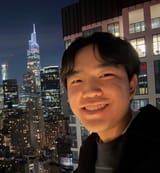Why Squid Game VIPs Sound So Weird

Despite Squid Game's international success, the VIPs' awkward dialogue has consistently thrown off English-speaking viewers, an immersion-thwarting problem that has persisted into Season 3.
Reddit users frequently described the VIP scenes as sounding like English lessons or AI voiceovers. And across internet forums people have reported that, despite Squid Game's global popularity, the quality of the VIP acting didn't improve across seasons.
But the VIPs' awkward lines likely stem from production logistics and a focus on authenticity, not poor acting skills.
Squid Game's Global Rise
Although producers localized Squid Game for a Korean audience, Netflix distributes the show to a massive international fanbase. Netflix's global presence has led to the show's clear and broad impact – Squid Game is one of the most popular franchises on the platform, with 600 million views across the first two seasons.
To capitalize on this success, the franchise has made spin-offs, including Squid Game: The Experience, an official attraction available in New York, London, and Sydney, cities with significant English-speaking audiences.
Given its immense global appeal, one might expect Squid Game to feature top-tier English acting for its VIPs. However, this persistent issue likely arises from deeper production challenges
The issue of foreign language awkwardness exists beyond Squid Game. My mom, a Korean-born American, constantly notices poorly delivered Korean lines in American shows. Just like in Squid Game, these lines break the show's immersion. But this is because my mom is a native Korean speaker and has an ability to catch small unnatural speech patterns.
This is the same issue with the English perception of VIP dialog in Squid Game.
The Language Gap
The Squid Game VIPs don't sound that bad to Koreans, and probably everyone who doesn't speak English. This outcome is surprising, as English is a mandatory subject in many Korean schools, leading to a considerably high English proficiency among the population.

And I've seen this firsthand. Even without speaking a lick of Korean, I have been able to interact with Korean employees in near-perfect English in areas outside of Seoul and other tourist destinations. Many service workers I met spoke fluent English, likely due to regular interaction with foreign visitors like me. Why can't these multilingual Korean speakers distinguish poor on-screen performances seen in Squid Game from authentic conversations when talking to tourists?
The abilities of L1 (native) speakers are more nuanced and advanced than L2 (second-language) learners. Even if they can hold a conversation in English to cater to tourists, they’re unlikely to pick up on the uncanny delivery in the VIP scenes. While many Koreans comprehend English, most L2 speakers don't achieve the native-like fluency required to catch these subtle errors. As a result, the director's intended nuances may get lost in translation or delivery.
This inability to perceive linguistic nuances directly contributes to the awkwardness, a fact even English-speaking actors in Squid Game acknowledge.

In a 2021 article, The Guardian interviewed a VIP actor. This VIP, John D. Michaels, reported that the English-speaking actors were, indeed, specialized and had to go through arduous auditions. Michaels claims that it's not acting skills, but poorly translated lines without context that led to the poor performance: the director provides actors with lines without sufficient feedback or cultural context.
And the English-speaking actors generally don't have the power to fix the mistakes. The production team primarily operates in Korean, often prioritizing Korean scenes over English ones. Directors rarely scrutinize English scenes, leading to performances that feel unnatural despite the actors speaking with native fluency.
The Reasoning
This focus on Korean seems like a poor business practice, given that most of the show's viewership is abroad. Yet, even if they wanted to, successfully catering to American and international audiences is a significant challenge for Korean film crews. A production team balancing both Korean and American audience expectations faces an extremely difficult task, and moving production away from Korea removes the show's integrity, risking cultural authenticity.
Given these systemic issues, it's difficult to fix the problem even after receiving frequent criticism of scenes featuring VIPs. Producers intended for Squid Game to be a commentary on the state of South Korean society for Koreans, and English audiences came as a byproduct of its growth. It is likely that, when planning Seasons 2 and 3 following the explosive international success of Season 1, directors presumably remained focused on Korean audiences, leaving awkward English acting unfixed.
While improving English scenes might boost western receptivity, it risks undermining the show's focus. As a critique of capitalism and Korean chaebol culture, the show does an excellent job for its intended purposes. This decision to not improve the VIPs stays true to the show's core message.





